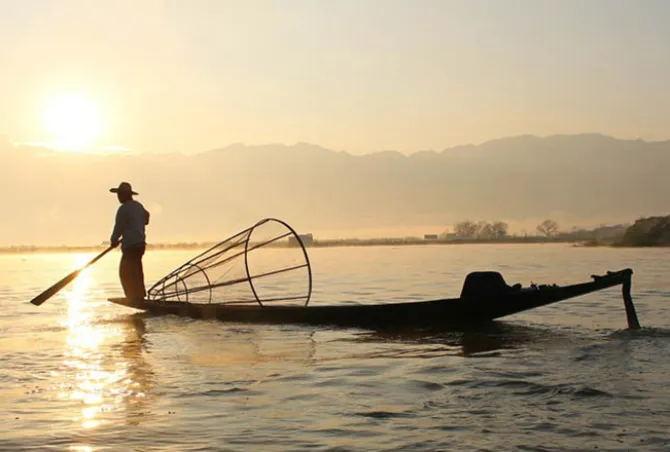-
CENTRES
Progammes & Centres
Location
In today’s world, the role of major and middle powers is more critical than ever in ensuring that wider developmental concerns are addressed

The rise of major and middle powers signals the onset of a multipolar world, with a significant concentration of these powers in Asia. Naturally, this is also leading to several countries’ renewed attention towards Asia and the broader Indo-Pacific region. As countries redirect their focus towards Asia and the Indo-Pacific, it has ushered in increased engagement and a growing recognition of shared economic and developmental goals. However, the region is not without its challenges; the United States (US)-China rivalry, China’s adoption of an assertive and isolationist foreign policy, the ongoing Russia-Ukraine conflict, and key stakeholders’ lack of focus on the sustainable development goals (SDGs) are casting a shadow of uncertainty.
The ongoing great power rivalry between the US and China remains unabated, while the protracted Russia-Ukraine conflict shows no signs of resolution, continually diverting attention away from some of the perceived pressing issues and shared concerns of the Global South. While the Russia-Ukraine conflict is undeniably distressing, many Global South countries believe that this conflict does not pose an immediate threat to their security interests to the extent that it does the West. Many believe that adopting a position in this conflict may not necessarily contribute to addressing their more pressing concerns, which encompass issues like debt, food and energy security, climate change, digital technology, and more. In this context, amidst perpetual global contestation, developmental partnerships are taking centre stage in the strategies of major and middle powers, driven by their commitment to assert influence and advocate for the interests of developing and underdeveloped countries.
The ongoing great power rivalry between the US and China remains unabated, while the protracted Russia-Ukraine conflict shows no signs of resolution, continually diverting attention away from some of the perceived pressing issues and shared concerns of the Global South.
As the Indo-Pacific region continues to garner increased attention and endorsement, it is entirely reasonable for many Global South countries to expect an effective action plan from key stakeholders that addresses developmental issues and concerns. However, several countries in the Global South also harbour limited trust of the West. This mistrust can be partly attributed to a history of inconsistent engagement and attention, as well as instances where actions did not align with rhetoric. One recent illustration of this is the cancellation of the scheduled visit by President Joe Biden to Papua New Guinea in May 2023, which was attributed to domestic issues. This is also influenced by a lack of confidence in the United Nations-led system, as countries such as India have advocated for reforms to address what is now seen as an outdated form of multilateralism. Meanwhile, in light of the ongoing rivalry between China and the US, coupled with China’s increasingly assertive policies, countries in the Global South are actively seeking to reduce their dependence on China and are turning towards major and middle powers that are perceived as more reliable partners. Trust in Western-led institutions, as well as in the US and China regarding their commitment to addressing developmental issues, is progressively diminishing. Collaborating with middle powers possessing the capability to make meaningful contributions, is now being considered essential in tackling developmental challenges.
Although like-minded countries in the Indo-Pacific have shown increased interest in addressing developmental issues and charting a credible path towards achieving the SDGs, these endeavours are currently in their early stages and are yet to produce tangible results. Notably, the Quad, a regional grouping comprising Australia, India, Japan, and the US, has opted not to explicitly define itself as a security-focused group and is broadening its focus towards sustainable development. Nevertheless, the Quad still faces the challenge of solidifying its credibility, with concerns that it may be perceived as an anti-China coalition. While the effectiveness of a collective approach may be lacking, middle powers like Australia are presenting a credible alternative. Examples of this alternative approach include the Australian government's collaboration with South Pacific countries to provide disaster relief, the establishment of climate partnerships, and the implementation of a Blue Carbon Initiative.
The Quad, a regional grouping comprising Australia, India, Japan, and the US, has opted not to explicitly define itself as a security-focused group and is broadening its focus towards sustainable development.
India, a rising major power, is emerging as a country synonymous with offering solutions to the challenges facing the region. India’s G20 presidency and its agenda serve as prime examples of how both rising major powers and middle powers are actively influencing the regional discourse. During his visit to the US in June 2023, Prime Minister Modi proclaimed, “Under India’s G20 presidency, we are laying emphasis on the spirit of One Earth, One Family, One Future. We are lending a voice to the priorities of the Global South.” This isn’t just Modi attempting to shape a narrative; it is supported by some of the leaders of the Global South. For instance, during his visit to Papua New Guinea, the Papua New Guinean Prime Minister James Marape told PM Modi, “We are victims of global powerplay... You (PM Modi) are the leader of Global South. We will rally behind your (India) leadership at global forums.” While Biden’s cancellation of his visit to Papua New Guinea was seen as a missed opportunity, it shifted the spotlight onto PM Modi for India’s increased focus on the South Pacific. To his credit, PM Modi is fulfilling his commitment to engage with the South Pacific. During his visit to Papua New Guinea, the third Forum for India-Pacific Islands Cooperation (FIPIC) summit was convened after an eight-year hiatus, and PM Modi launched the Sustainable Coastal and Ocean Research Institute (SCORI) that is supported by the National Centre for Coastal Research, Chennai. India’s commitment to inclusiveness is exemplified by the admission of the African Union into the G20. Furthermore, the G20 New Delhi Leaders’ Declaration placed significant emphasis on expediting progress towards achieving the SDGs.
India’s G20 presidency and its agenda serve as prime examples of how both rising major powers and middle powers are actively influencing the regional discourse.
Middle powers like Australia, Indonesia, and South Korea are increasingly recognising their heightened responsibility in advancing the 2030 Sustainable Development Goals agenda. A collaborative approach is essential. In today’s fragmented world, where major powers remain preoccupied with their geopolitical interests rather than the wider developmental concerns, the role of other major and middle powers is more critical than ever in ensuring that no one is left behind and that critical issues are effectively addressed in a timely manner.
Sana Hashmi is Fellow at Taiwan-Asia Exchange Foundation and George H. W. Bush Foundation for U.S.-China Relations.
The views expressed above belong to the author(s). ORF research and analyses now available on Telegram! Click here to access our curated content — blogs, longforms and interviews.

Sana Hashmi is a Fellow at the Taiwan-Asia Exchange Foundation and the George H. W. Bush Foundation for U.S.-China Relations.
Read More +